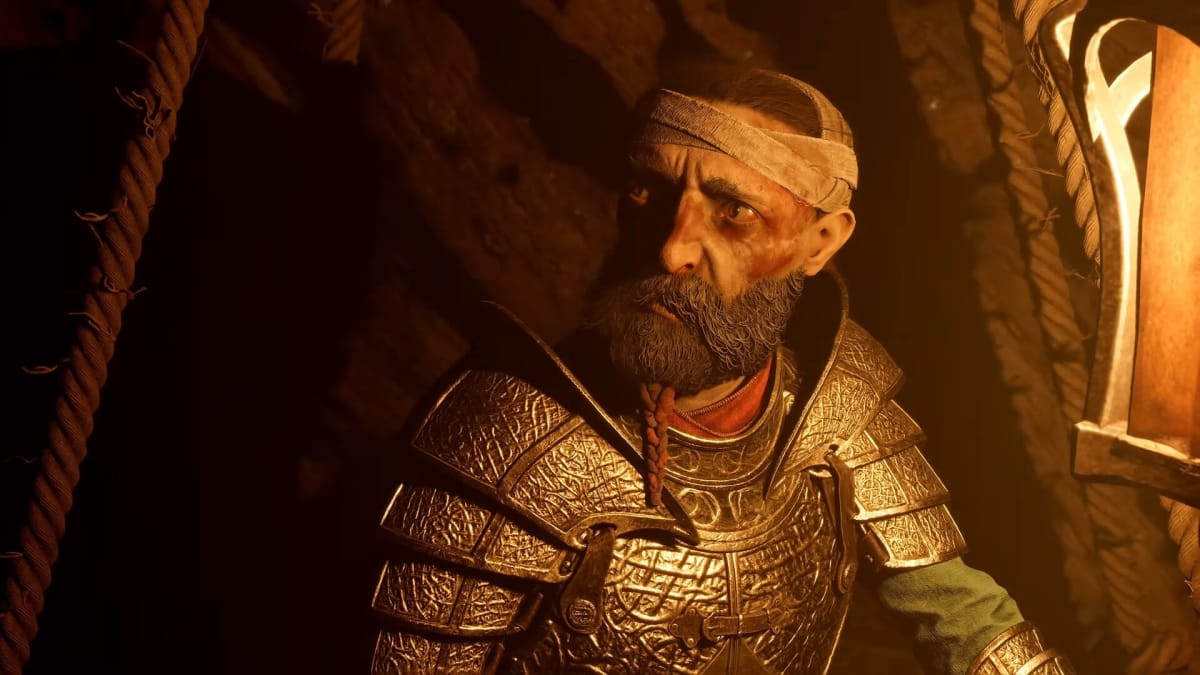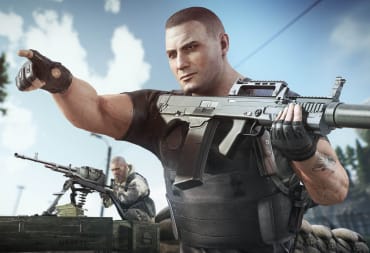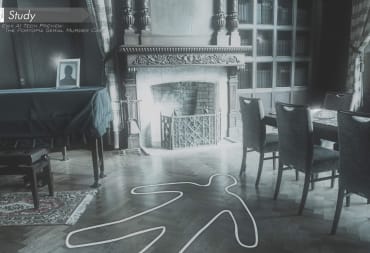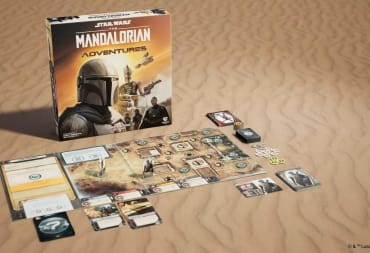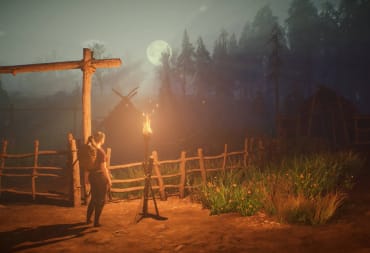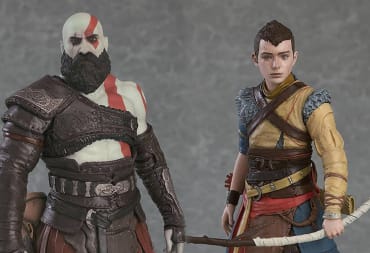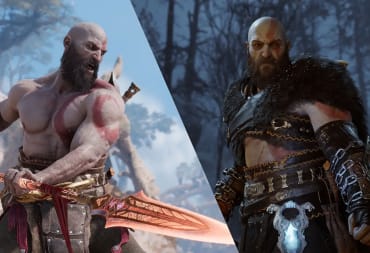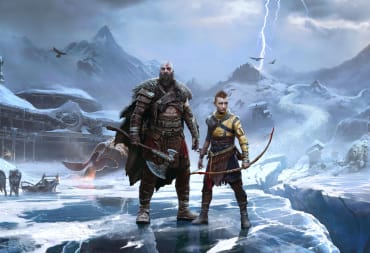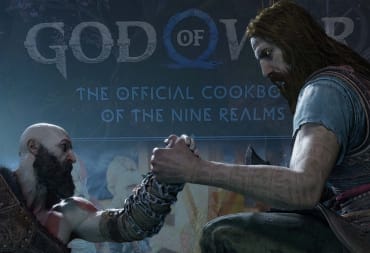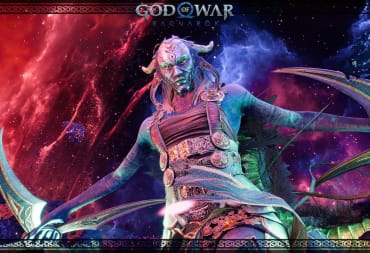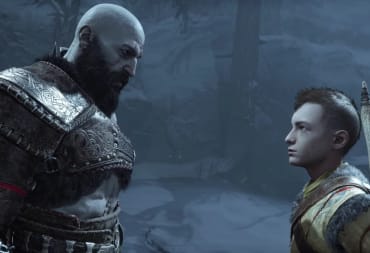God of War Ragnarok has everything you want in a big-budget blockbuster game. The action is satisfying, the set pieces are full of jaw-dropping spectacle, and the story is gripping enough to pull you all the way through. What really elevates Ragnarok, however, is its characters. From the stoic Kratos to the foul-mouthed Brok, the game’s best moments feature its characters at heart. No character better shows off many of Ragnarok’s main themes than Sindri.
This contains heavy spoilers for God of War Ragnarok
Vengeance plays a key role in just about every major character’s story in Ragnarok -- not just vengeance either, but vengeance for family. Freya seeks vengeance for Baldur, Kratos for his wife and child in Greece and eventually for wrongs done to Atreus, and fairly late into the story, Sindri for his brother Brok.
When Odin reveals himself as Tyr in Sindri’s home after stabbing Brok, leading to Brok's death, Sindri is forever changed in an instant. That depth of loss is profound, and the well of his personality has been emptied of compassion and kindness, replaced with grief, anger, and a desire for vengeance.
Sindri is Kratos the moment after he realizes he has killed his wife and child, and he is Freya after Baldur’s death. And in some ways, even though we do not get to see it, he is likely in a similar place emotionally to Thor after the deaths of Magni and Modi.
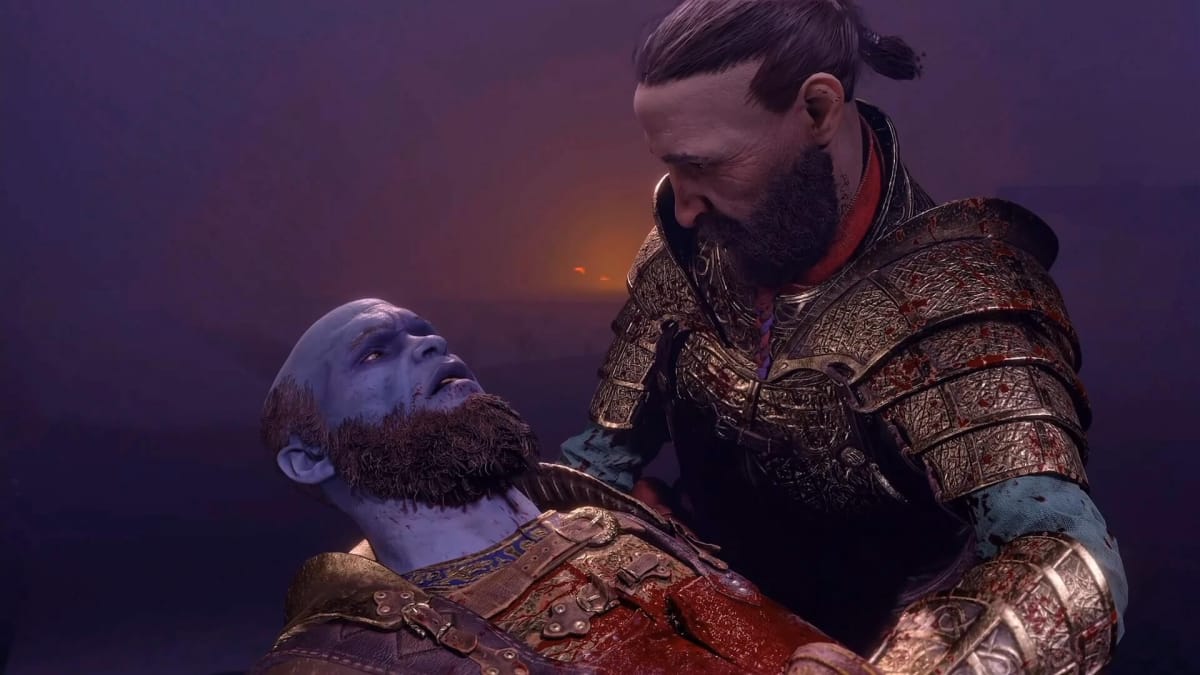
Who Sindri suddenly turns into is antithetical to everything we know Sindri to be. Sindri is a very particular person and germaphobe, but none of that matters anymore after Brok’s death. From him cradling Brok as he is dying until the final second you see him in the game, Sindri is covered in blood and grime, unimaginable with what we know of him.
In the build up to Brok's death, Ragnarok had spent a lot of time with its characters handling grief, anger, and what happens when that desire for vengeance consumes them. Kratos has started, journeyed, and ended his path of vengeance to be left with regrets. Freya has her own realizations before she becomes consumed by those emotions.
Things are a bit different for Sindri, however. Both Freya and Kratos were directly involved in the tragedy that then consumed their lives. Their actions led directly to their own tragedies. For Sindri, his only real crime was trusting the friends he had welcomed into his home. He did not let Odin in and he did not think for a second that he put Brok in a situation that would lead to harm, let alone his death.
Sindri lashed out immediately at everyone around him after Brok's death, though to his credit he does not necessarily lay the blame directly at their feet. He does vent his frustrations with Kratos and Atreus for taking advantage of his kindness, always taking things from him.
While he was not directly responsible for Brok's death, Sindri does have a lot of guilt. Once he pushed those around him away, he could really only look inward. What he finds there is likely his biggest source of self-loathing and anger.
Earlier in the game, Sindri tells Atreus the story of bringing Brok back to life after an accident that happens before we see them in the games. He rescued Brok’s soul from the Lake of Souls in Alfheim, but only partially. Of the four parts of a soul, he failed to recover Brok’s direction. So when Brok died, his soul had nowhere to go, meaning it did not join some sort of afterlife. Brok was well and truly dead because of Sindri's own actions.
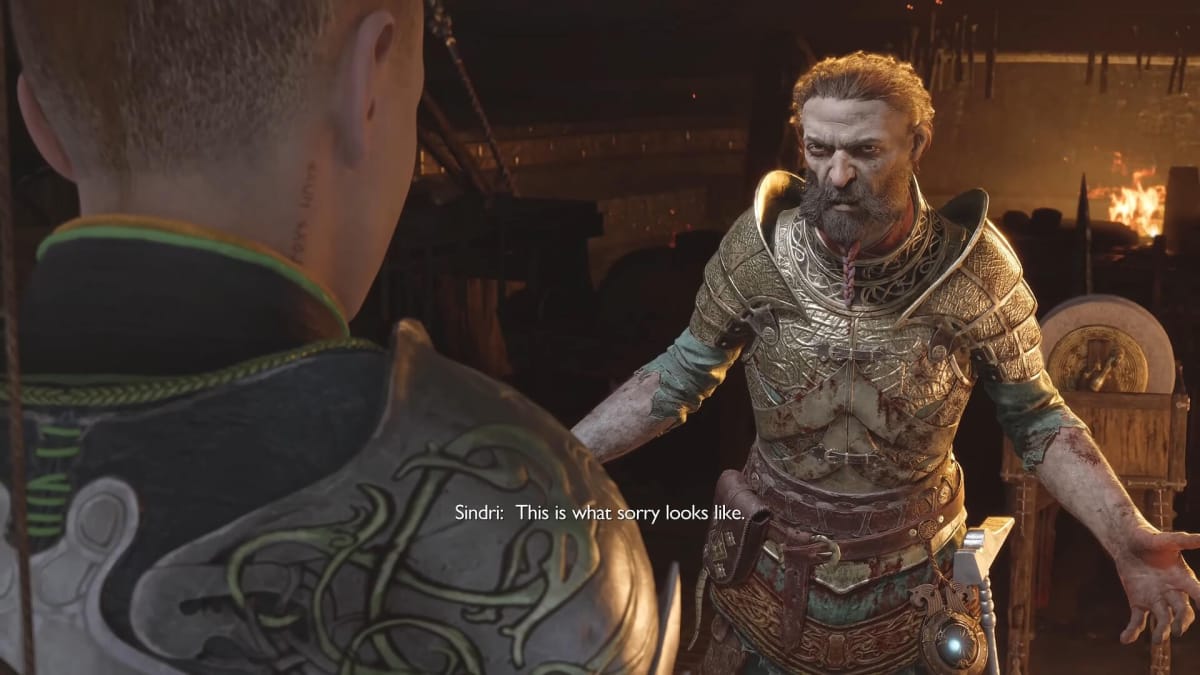
What makes matters worse for Sindri is the confidence he once had is gone, and how he views himself has been shattered. While not a boastful or prideful person, Sindri has managed to keep himself one step ahead of Odin in many ways, and he created two of the most powerful weapons of all time in Mjolnir and the Leviathan Axe.
When Odin kills Brok, all that careful planning became meaningless in an instant. All of the safeguards, the obstacles, and effort put into hiding the brothers away wasn't enough. Sindri wasn't able to do all that he needed to protect Brok. While Kratos and Atreus brought Odin into his home, Sindri both allowed and encouraged the pair in their exploits. His care and trust of Atreus turned out to be Sindri's biggest flaw. In other words, his empathy was his downfall.
His mistake seems unforgivable, and until Sindri realizes that he can forgive himself, like Freya was able to do, his rage and grief will continue to dictate his actions. Right now, though, it's easier to blame the action's of others instead of finding the real truth of what happened and why. Until he's interested in examining himself and his reaction to what happened to him, Sindri will be stuck in a vicious cycle of pushing those he loves away and continuing his self-destructive actions.
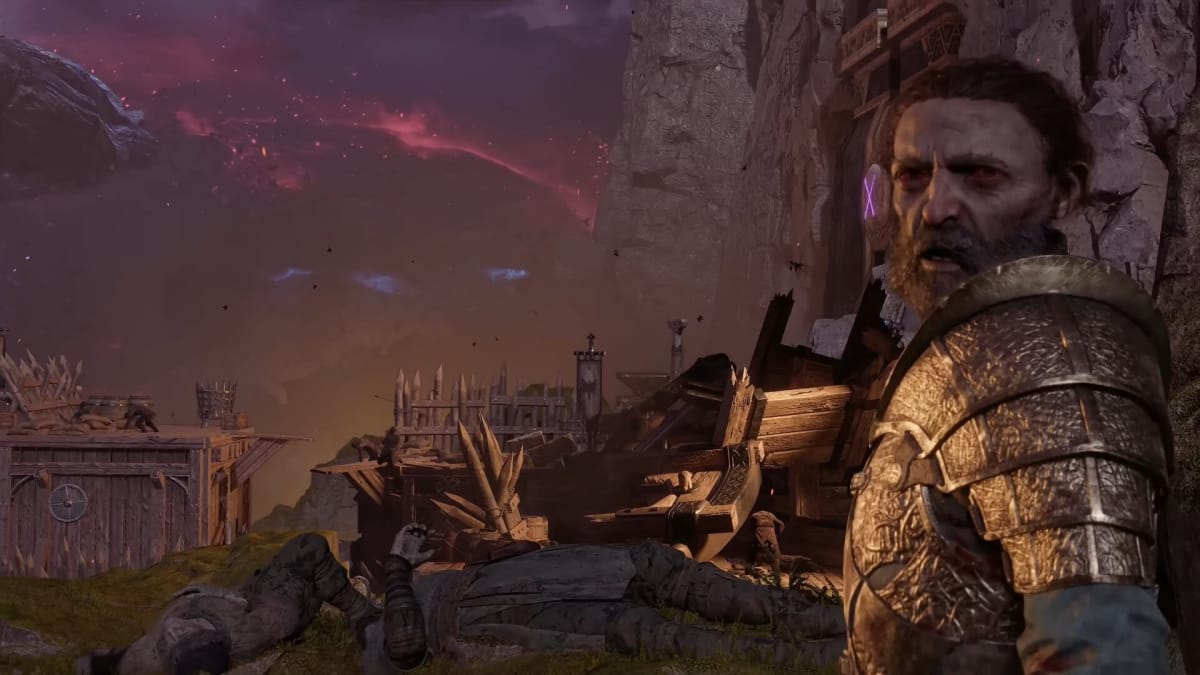
One scene near the end of the game perfectly encapsulates many of the game's biggest themes. Kratos and team are assaulting Asgard, where they need to destroy some war machines that are preventing Ragnarok from breaking down the wall to let them get to Odin.
Sindri shows up with a device that destroys them, but in the process, it kills the Midgardians who were nearby either manning it or are just innocent casualties. Completely unaffected by the loss of life, Sindri simply asks, “More or less what you wanted?” to Atreus, a barb at how yet again Kratos and Atreus asked something of him, with the added implication that they are responsible for the loss of those lives -- just another set of unintended consequences from the pair's actions.
Atreus replies immediately that wasn’t what he wanted and begins to repeat advice Kratos had given him throughout his life: “Close your heart to it.” In other words, don’t feel the emotion or pain, move on from it. Do not let it dominate you.
Atreus then repeats another set of words Kratos uttered just before they started their assault on Asgard, “Wars are won by those who are willing to sacrifice everything.” Like the final piece of the puzzle falling into place, Kratos has a sudden realization of just how wrong he was in some of the advice he's given Atreus. Sindri was a man sacrificing everything, including his empathy, to win a war. Maybe it's not only not worth the cost, but maybe there is another way.
After that realization, Kratos tells Atreus that he was wrong and Atreus should open his heart because that is what makes him who he is. While not said in this scene, it ties into another often-given piece of advice from Kratos: Don't be sorry, be better. Limiting himself by rejecting an examination of his own emotions is holding Atreus back from being better. It is likely Kratos' most triumphant moment as a parent, allowing Atreus to be the better person by using his kindness as a strength.
What Kratos sees in Sindri is a man who has closed his heart to everyone around him, including his friends. Closing your heart, not facing the emotions you feel in reaction to events in your life, is a dark and dangerous path. He is wallowing in his sorrow by funneling his grief into rage, convincing himself that the only way he will feel better is by avenging his brother's death.
This is exactly the type of man that Kratos used to be. The same kind of man that Kratos ran away from to start fresh in this Norse world. That is precisely why the realization that he was wrong is so powerful. It's fueled by a fear that Atreus would somehow stumble down the same path of pain, agony, and regrets of Kratos -- the path Sindri is now on.
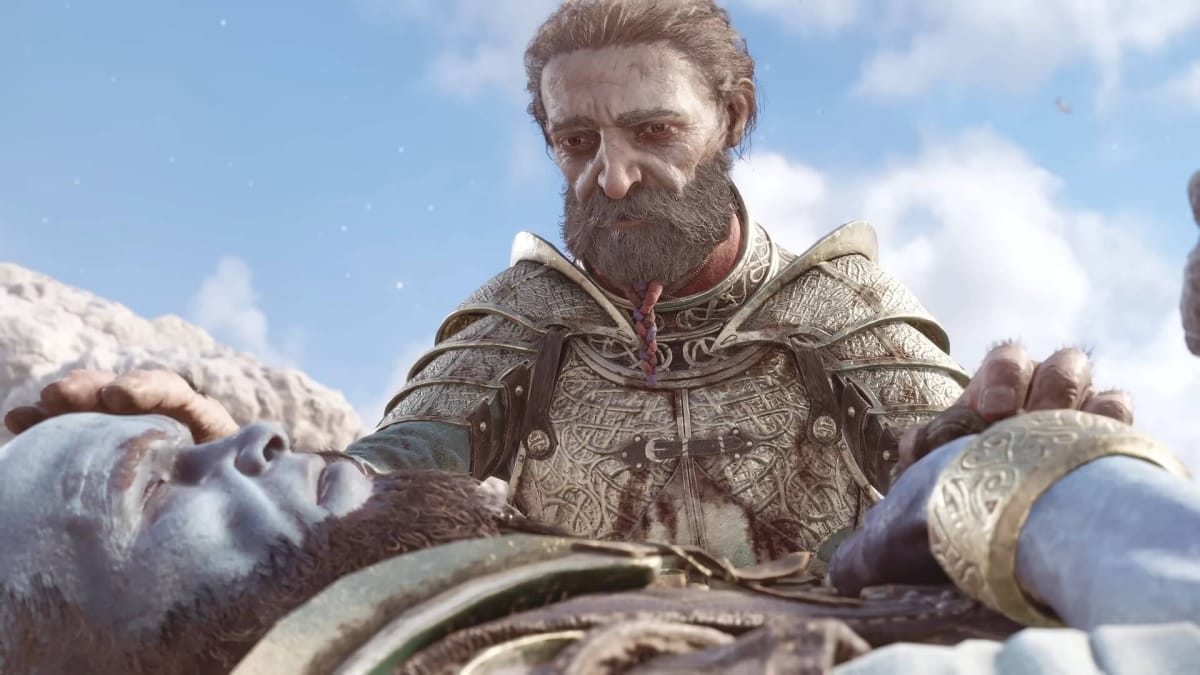
Sindri’s final scene is at Brok’s funeral. Kratos attempts to say something to Sindri about Brok but is shut up immediately by the look Sindri gives him. Sindri seems to want to say something, but his face is so contorted with rage he can't find the words.
In that moment, Mimir figures out a riddle Brok had given him forever ago in the game. There is no better metaphor for what is happening to Sindri mentally and emotionally.
What gets bigger the more you take away?
A hole. A hole dug by vengeance and by arrogance, but most of all by the cost of loving someone so dearly: profound, unrelenting grief.
Have a tip, or want to point out something we missed? Leave a Comment or e-mail us at tips@techraptor.net
